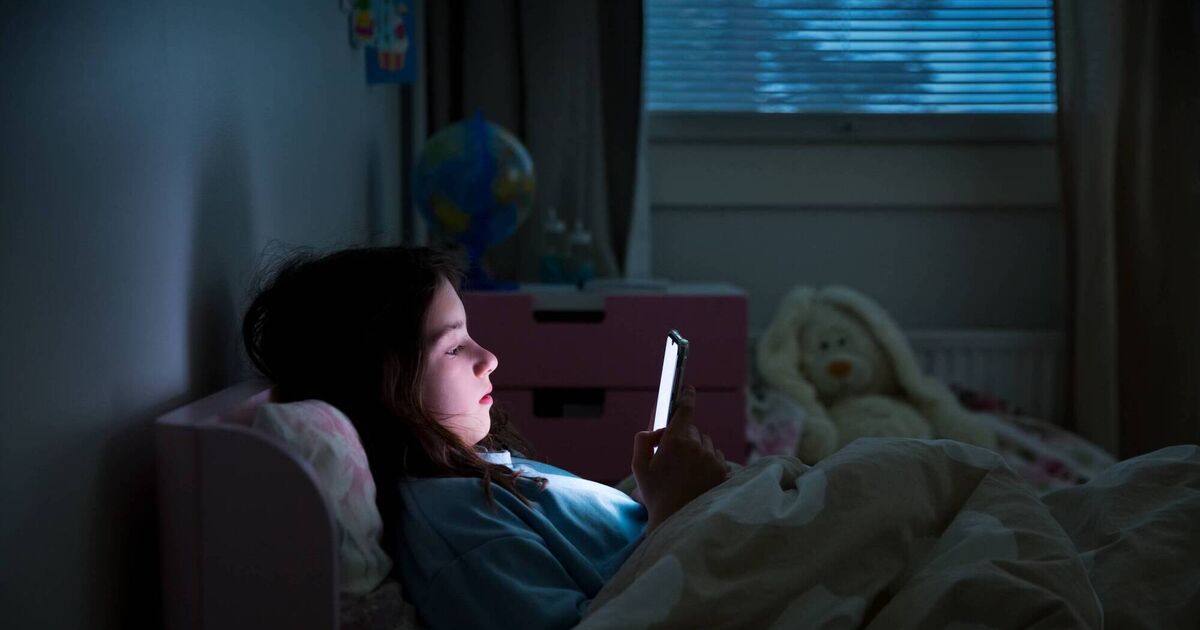Have you ever found yourself in a scroll stupor? The modern phenomenon of staring into the infinite vertical vortex of the black screen we carry in our pockets. ‘Just one more’, ‘just one more’, ‘hang on, didn’t I come into this room to do something?’ Be honest with yourself, you are addicted to your phone.
So am I, we all are. You panic-pat your pockets when you don’t know where it is, you check it every 15 minutes for a new alert, you take it out at dinner during the two and a half minutes your partner goes to the toilet.
The tech companies came in peace, offering “free” infinite access to anything, everywhere, all of the time. But if you’re using a service that’s free, then the product is you. Your eyeballs and your attention and your time are being sold to advertisers, the all-powerful algorithm feeding your revenue-generating eyeballs things you like to keep you glued to the screen.
 Besides addiction problems, the dangers for children are beyond frightening. You’re not giving your child access to the internet, you’re giving the internet access to your child.
Besides addiction problems, the dangers for children are beyond frightening. You’re not giving your child access to the internet, you’re giving the internet access to your child.
In the beginning, this was relatively harmless. Just a new way for people to stay connected to their friends or see what celebrities are saying.
But the social media social experiment has revealed its rotten core, and it is our children and teenagers that are paying the price.
Besides addiction problems, the dangers for children are beyond frightening. You’re not giving your child access to the internet, you’re giving the internet access to your child. Surveys indicate more than half of 11-13 year-old-boys have seen pornography, mostly unintentionally. Eighty-four per cent of bullying of children aged eight-17 now takes place online.
The age group with the most rapid increase in rates in self-harm is those aged 10 to 14 years, and predators no longer lurk in playgrounds, they can talk to your child in their own bedroom.
So what’s to be done? Irish Government intervention would be welcome, instead of cosying further up to Big Tech. Australia is the first country in the world to introduce a social media ban for under-16s.
Coming into effect from December 10, it will ask social media companies to take “reasonable steps” to ensure under-16s cannot set up accounts on their platforms. Denmark has also announced plans to introduce a ban for under-15s. Norway and Spain are ready to follow suit.
It’s good that governments are paying attention to the problem, giving the conversation a platform and making steps in the right direction. But Australia’s ban is vague and has no teeth. What does “reasonable steps” mean? That’s being left to the tech companies to decide, and can we trust the people that created the problem to fix the problem?
Under Australia’s ban, Big Tech will face fines of up to $49.5m for serious or repeated breaches, but as former Facebook executive Stephen Scheeler told AAP: “It takes Meta about an hour and 52 minutes to make $50m in revenue”.
Meaningful legislative action will hopefully come, but we can’t wait around. We need to protect our children today. Parents have more power than we think, and it starts with not giving children unregulated access to smartphones, smart devices and social media.
Yes, peer pressure is real, and you don’t want your kid to be singled out. But there is safety in numbers — talk to the parents in your kids’ class, get a pact going not to buy your kids smartphones.
Smartphone Free Childhood is a grassroots movement I’ve joined that provides an anonymous online pledge for your school — this is effective at cutting peer pressure off early. If you want to keep your child contactable and locatable, consider a dumbphone or tracker watch.
 According to CyberSafe Kids research earlier this year, more than 80% of primary school-aged children with smartphones have them in their bedroom.
According to CyberSafe Kids research earlier this year, more than 80% of primary school-aged children with smartphones have them in their bedroom.
If you’ve already bought your kid a smartphone and you don’t think you can get the cat back in the bag, you need to at least monitor their usage closely and provide them with guard-rails.
According to CyberSafe Kids research earlier this year, more than 80% of primary school-aged children with smartphones have them in their bedroom. Unsupervised access to social media and smart devices puts children at a massively increased risk of being exposed to sexual or violent content or being contacted by strangers from anywhere in the world.
A reckoning is coming and we are very likely going to look back at these decades and think ‘what were we doing?’, and ‘why did we think that was ok?’ Ask yourself this — if every other child in your kids’ class were smoking, would you just shrug your shoulders and pass them a pack of 20? No, you certainly would not.
We need to stop pretending as a society that social media is just a harmless way to kill your free time or stay in touch. The dangers are real and until the Irish Government takes meaningful action, no one is going to protect your child but you.
Dave Corkery is a marketer, podcaster and a member of Smartphone Free Childhood’s East Cork group

